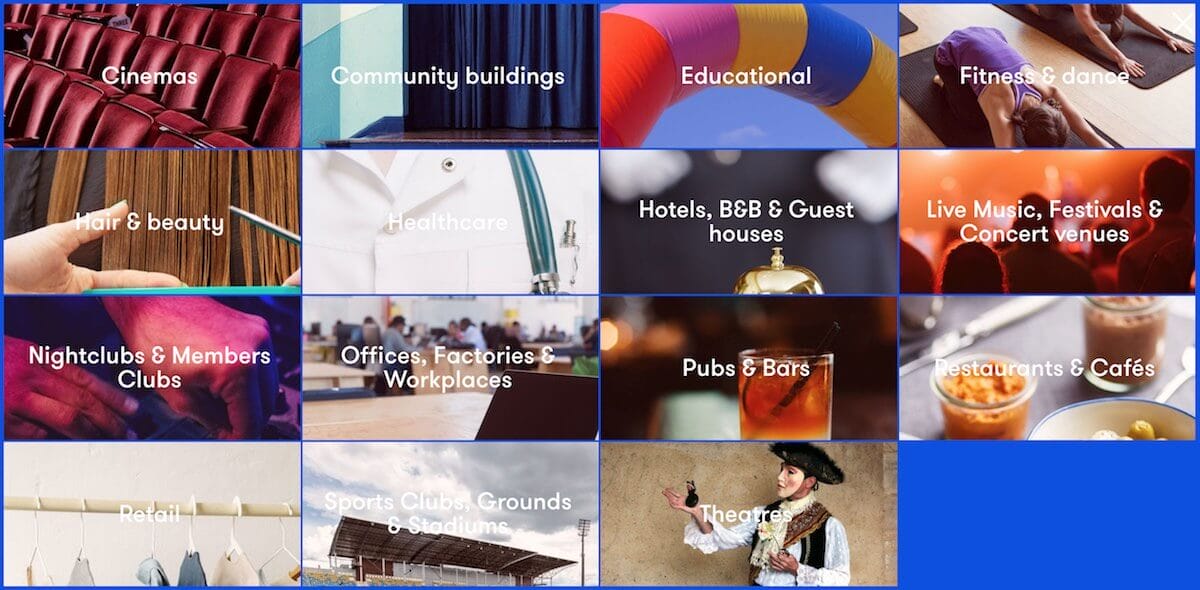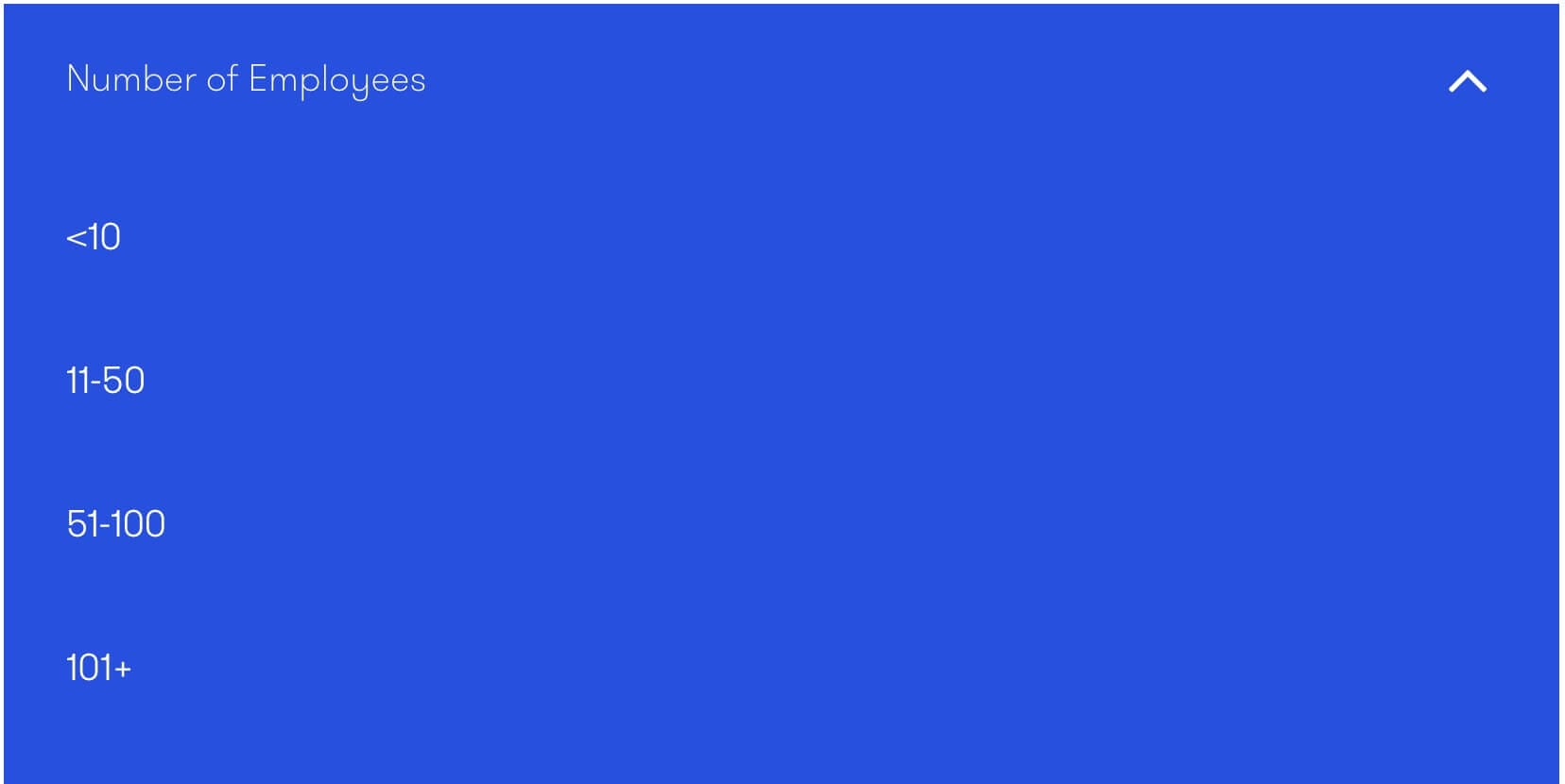Background Music for Business: Can I use Spotify, Apple & Others?

No matter if you run a restaurant, own a gym or manage a retail store – you certainly use background music to improve your overall customer experience. A great in-store music atmosphere engages your customers while motivating also your employees.
You certainly know that. But what you may not know is that 80% of business owners are not aware that B2C music services are not licensed for commercial use. This means that Spotify, Deezer or Apple Music cannot be played in a business like a store or a restaurant.
So the answer to the question “can i use Spotify Deezer or Apple Music in my business to play background music?” is no. And this might be a big surprise for you!
The good news is that there are multiple alternative music services to Spotify that you can use. While complying with the law, and getting even more relevant music that you would get using a mainstream music service.
So why exactly are mainstream music services like Spotify, Deezer and Apple-Music not allowed in a business context? And then which alternative music services to use in my business in order to avoid legal penalties and fines? In this article we will learn all about what a business owner needs to know about this topic.
Using Spotify, Pandora, Amazon-Music, Youtube or Apple-Music commercially
Copyright laws ensure that music streaming services pay artists fair license fees for the use / broadcast of their musical work. Mainstream streaming services like Spotify, Deezer, Apple Music, Amazon Music, Youtube and others meet the requirements for private music playback. For example, a Spotify subscriber can listen to any song on Spotify at home or in their car, alone or with family and friends.

Spotify does not, however, pay the higher license fees for the public reproduction of music in a company, corresponding to the broadcasting rights. This means that you can use these music services at home with your family, in the car, or while jogging, but not in a commercial location such as a shop.
Spotify Terms and Conditions read the following:
We grant you (…) a limited, nonexclusive, revocable license for your personal, non-commercial use of the Content for entertainment purposes (the “License”).
On their support page, Spotify explains the topic again in other words:

For example, if you play music in a restaurant with 70 guests, the musical work of the artist being played will be broadcast to a large audience. This is a very different use case than having just one person listening to the same song alone at home. In the case of a restaurant, the artist earns much higher license fees. Many more people listen to the work of art and enjoy it. Because of this, B2C music services like Spotify, which only pay artists a micro financial compensation per stream (a unique listener at home), cannot be used in a commercial context. Spotify does not fairly compensate artists for large audiences of 50 or 100 listeners. If it were, their monthly fee would be much higher than the price of 9.90 USD per month.
In concrete terms, this means that you, as the business owner or one of your employees, are allowed to use your B2C music subscription (e.g. Spotify) – not even a paid subscription, the so-called “Premium” – to broadcast music in your home! You must be using a music service that is licensed for business use; H. a legal business music service that pays high royalties to artists based on the large potential number of listeners at the business locations.
Legal requirements for using background music in your business?
Super simple. The law says that in public places, like in a café, a hotel or an office, on contrary to a private place like your home or in your car, you cannot broadcast music without owning a specific license.
For example, in the UK, you will need to own a license from the PRS PPL Ltd. In Germany, to be registered at the GEMA while owning a license from the GVL. And in France, to be registered at the SACEM when owning a license from the SCPP.
The obligation to own a music license
Again, very simple answer: to compensate fairly the artists (e.g. singers, authors, labels) whose music work you use when playing their songs in your business. Think about it this way: if you play a track from Rihanna in your bar, you potentially have 50 guests listening to it.
If you stream from Spotify a song from Rihanna into your earpods while going on a jog, you are the only person listening to the song. And Spotify pays – out of your monthly subscription – for each individual stream a micro-amount of money (i.e. royalty fees) back to the artists.
Now in your bar, as a business owner, you will also have to pay back to the artists a sum of money for the 50 persons enjoying their music work. That is what this PRS license in the UK is about. Or the SACEM license in France, or the GEMA ones in Germany.
This music license covers the amount of money that your business is paying back to artists for using and broadcasting their artistic work to a large audience.
How is the music license fee calculated?
This music license fee is based on your business type and the surface of your location (in square meters). The bigger your business, the more guests will listen to the music and artists you play, the higher the fees.
When understanding this simple matter of facts, you understand now the essence of why this license exists for your business. It also makes it more clear why the fee is based on the size of your business (surface in square meters), and why it is legitimate, even ethical, to pay it to support the work of artists we like.
Which music license is right for your business?
If you are playing recorded music in your business or organisation for customers, staff or both, through radio, TV, CDs or streaming services, you will need a licence to do so lawfully. And as mentioned above, the license fee will be based on your business type and size (i.e. number of employees or surface in square meters).
So let’s now pick the right license that corresponds to your establishment, to make sure that you pay the right fee, and not more than you should!
The exception that rules in USA and Canada
If your business is located in the USA or Canada, few legal B2B music services like Soundsuit or Moodmedia include all the licensing fees (e.g. BMI, ASCAP, SESAC, GMR, SOCAN, RE:SOUND) in their pricing.
If your business is located in the US, and you use a service such as Soundsuit, all the copyright fees and public performance rights are included in your Soundsuit subscription. You do not need to pay BMI-ASCAP fees nor GMR and SESAC fees on top.
If your business is located in Canada, and you use for example a service such as Soundsuit, all the copyright fees and public performance rights are included in your Soundsuit subscription. You do not need to pay SOCAN fees nor Re:Sound fees on top.
The few exceptions to know about in USA and Canada
There are a few very specific exceptions, however. In both U.S. and Canada, if you play music in a business that does any of the following, you should contact the local collecting societies to subscribe an extra specific public performance license:
- Conducts physical activity to music, such as a dance studio or fitness class.
- Plays music from another source other than your Soundsuit product such as a DJ, karaoke, or live music.
- Charges an admission fee.
In EU and the rest of the world, you do need to pay a music license to your local Copyright Collecting Society (e.g. PRS-PPL in the UK, GEMA in Germany, SACEM in France, etc.). to broadcast background music in your business, even if you subscribe to a legal music service for business such as Soundsuit or Moodmedia.
The example of the music license in the UK
If you are located in the UK, we will only need one license. Previously, businesses – which needed licensing for the public performance of recorded music – had to obtain 2 separate licenses, one from PPL and one from PRS-for-Music.
From now on, the newly formed PPL PRS Ltd. entity streamlines all this for you: business owners only need to obtain a single licence, the so-called “TheMusicLicence”, and have to only deal with one invoice.
This is a great improvement for business owners, isn’t it? Music licensing is not the core business of any owners, and a simple, transparent and streamlined process to get and pay the right license as easy and fast as possible is what we all wish for.
The simple steps to get your music license
So let’s select the right license for you. Let’s assume that you are in the UK. For readers who are not, the process with your local copyright collecting society (e.g. SACEM, GEMA, AKM, BUMA/STEMRA, KONA, etc.) will be almost one to one the same. No worry.
Step 1
Go to the website of your local copyright collecting society, e.g. the PPL PRS Ltd.: pplprs.co.uk/

Step 2
Click on the “Get your license” button and land here: pplprs.co.uk/getyourlicence/. You will not find directly the precise tariff which applies to your establishment. You will need to request a quote from PPL-PRS. No worry, it is a simple online form to fill.
Step 3
In the form, select your business type. This is a very long list, ordered alphabetically, and covering all types of venues from “Bowling Alley” to “Cruise Ship” or “Hairdresser”. You will for sure find an entry that corresponds to your business, even if very specific like a “Lap Dance Bar”!

Step 4
Select your number of employees

Step 5
Fill your business contact information (name, address, email, etc.)
You’re done! Click on the “Submit” button, and wait for a few business days to get your final quote.
How to pay for your music license?
PPL PRS makes it easy to pay your yearly invoice online on their site. With other local collecting agencies like the GEMA (Germany) or the SACEM (France), it might not be the case. They will send you a physical invoice per post that you will have to pay per bank transfer or check.
In Germany, the GEMA is now collecting on behalf of the GVL the fees related to public performance rights, while collecting its own fees. The advantage for you: a single entry point to get your license, and only one invoice to deal with!
Other business owners in Europe will still have to deal sometimes with 2 licenses and two invoices:
- SACEM and SCPP in France
- AKM and LSG in Austria
- KONA and GRAMEX in Denmark
- SUISA and SWISSPERFORM in Switzerland
- BUMA/STEMRA and SENA in the Netherlands
- etc.
We should all hope that these local collecting societies will partner more closely and streamline their processes as is the case in the UK and in Germany. The trend is set, let’s now wait to see improvements taking place, such as one single invoice per business/store to cover all the copyright fees. Owners need their lives to be simplified, running a business is hard enough!
What about video clips on TV?
Streaming video clips on a TV in your store, from for instance services like YouTube, Vimeo or Dailymotion, is not allowed. These three video streaming services are not licensed for commercial use. The same applies for the music streaming from end-user (B2C) streaming services such as Spotify, Deezer, Apple Music, Amazon Music, Tidal, Qobuz, Youtube Music, etc. You are simply not allowed to use mainstream music streaming services – even if you own a paid/premium account – to play music in your store, i.e. for commercial use.
Royalty-free music versus licensed music: a strategic choice
According to a study by Nielsen in 2018 and of a second study by SACEM in 2016, 65% of customers in stores want to listen to music that they know or describe as being of high quality. 64% of customers rate royalty-free music as artistic work of lower quality and find it annoying to listen.
Impact and power of known music
This is surely the key question you need to ask yourself as a business owner: how important is it – for my brand, multiple locations, or single business – to have a unique customer experience? Interior design, lighting, customer service and background music are the cornerstones of a successful customer experience. Is attracting more guests to your business and turning them into loyal customers important to you? Do you want to use the full impact and power of a higher quality music playlist to connect with your customers?
Examples of royalty-free music (also called “elevator music”)
Examples of licensed songs and artists that your customers love
Price difference
Providers of royalty-free background music and providers of licensed background music do not differ significantly in terms of pricing – surprisingly! Here is a list of the major international players:
Providers of royalty-free background music
- Jamendo (Luxemburg) – von 5 bis 20 € / Monat pro Standort
- Epidemicsound (USA) – Preise nur auf Anfrage
- Music2biz (Deutschland) – von 10 bis 40 € / Monat per Standort
Providers of licensed background music
- MyInstoreRadio (USA) – 29 USD per month per location
- Ketchup Music (Germany) – pricing on request only
- Soundsuit (Germany) – 29 USD per month per location (use your own smartphone/tablet/laptop, or play via Sonos, or buy a Soundsuit media player for 199 USD)
- Soundexperts (Germany) – from 49 USD per month per location (+ one time payment for the 279 USD receiver)
- Moodmedia (Canada) – pricing on request only (+ one time payment for the 399 USD receiver)
Getting peace of mind: using a legal music service for business.
Copyright laws ensure that music streaming services pay fair royalties to the artists for the use/broadcasting of their musical work. Mainstream streaming services such as Spotify, Deezer, Apple Music, Amazon Music, Youtube and others meet the requirements for the private playback of music. For instance one Spotify subscriber can listen to any song on Spotify at home or in his car, alone or with his family and friends. But Spotify does not pay the higher royalties corresponding to the broadcast rights for the public playback of music in a business.
At Soundsuit, we have licensed our music service explicitly for commercial use. After you have registered a music license at your local collecting society (e.g. PRS-PPL, GEMA, SACEM, STIM, etc.), we will take care of bringing the right legal music to you: carefully selected to be used in a business context and uniquely tailored to you brand or location. You can test our professional music service for 30 days free, and experience the effect of our background music on your customer mood.
Soundsuit tailors music to your brand or business locations based on:
- your type of business (restaurant, office, gym, salon, etc.)
- your target customer group (gender, age, life style)
- your on-brand (or simply favourite) music genres (e.g. pop, jazz, hip-hop, lounge, rock, chillout, etc.)
- your brand / store positioning (mainstream, trendy, alternative).
And it works for brands or businesses of all sectors: hospitality, workplace, events, wellness, beauty, medical practices, etc.


